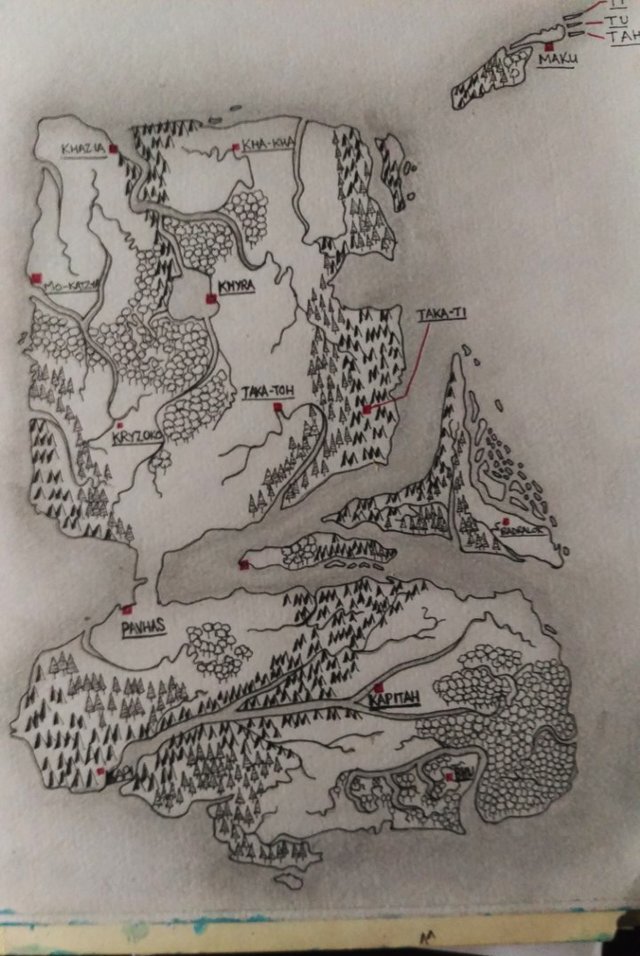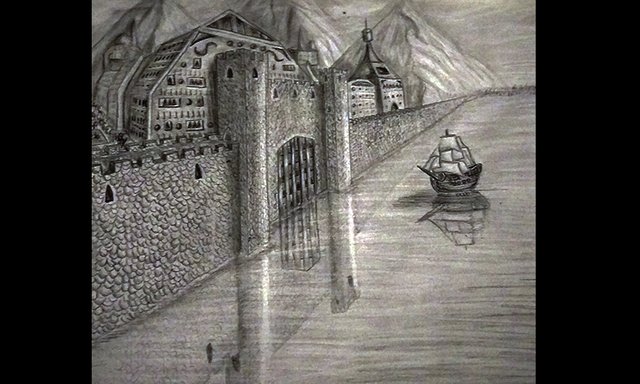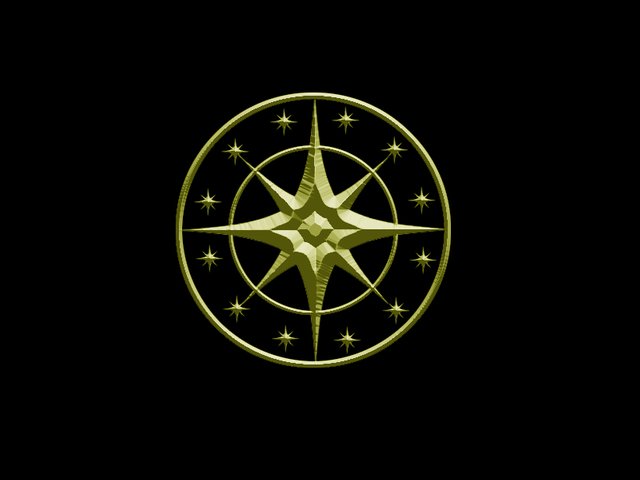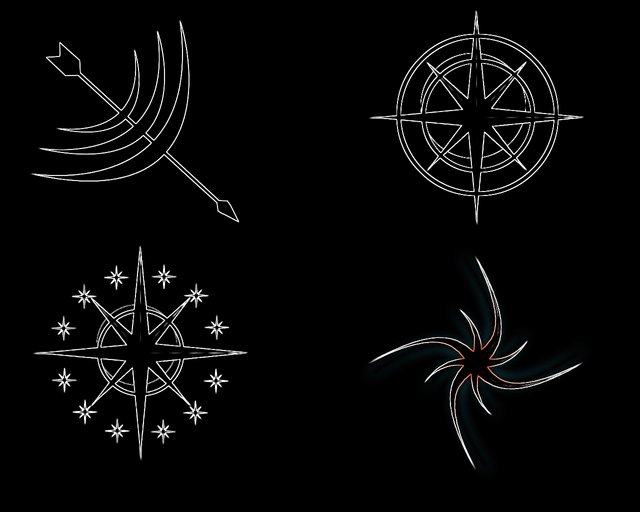How To Write An Epic-Scale Fiction Series [Preparation + Execution]

Preparation
As with just about everything, preparation is one of the most important aspects of any successful endeavor. One should think of this early stage as building the foundations for which your project will ultimately stand upon. The more time and effort put into planning and preparation, the stronger the foundations, meaning an increased chance of success. The last thing you want is to be half way through a story and realise that, due to a lack of planning, you have no idea where your story is leading or what the possible avenues to achieve that goal could be.
I took this into account when preparing to write my novel, Blood: Oaths and Offerings. Having such a rich story, spanning over multiple decades and several continents, with various religions, secret societies and a great number of point-of-view characters , I knew that I had to be sure I had laid the groundwork out in advance before I could begin to write words that would be in the finished piece.
The main reason for this was because, though I had an understanding of the plot, a few characters and the message I was essentially communicating, I hadn't a true understanding of the world that I was planning to write about. To introduce myself to my own universe, and the characters--as well as their motives-- who resided in it, I took the following steps. I would recommend doing as many of these steps as you can when preparing, but I admit that I'm a bit of a perfectionist and there are probably a few of these steps that you could skip to still achieve very good results.
Create Your World
In my case, I achieved this by drawing detailed maps of each of my continents.

I learned that there are a lot of benefits to beginning your preparations this way. While the map was drawn mostly at random, with only a couple aspects of it in mind before the sketch begun, on completion, a mere viewing of what I had produced spawned a wealth of ideas.
I knew now--based on the locations of the rivers--where the most prominent and densely populated cities would be located. I knew from the locations of the mountains and the forests, which routes would be utilised for trade and which of those routes would be susceptible to attack from bandits.
A closer look at the rivers revealed the most suitable locations for smaller cities, and which of the larger cities they would have to be subservient to in order to ensure frequent supplies being shipped downriver.
These are but a few of the notable revelations that a map of your world can help you produce. By drawing your own you will no doubt learn things about yours that I did not about mine, because the direction of the intended story is what dictates your analysis of the map, providing you with the best possible information that will relate to your own unique story.
Simply drawing a few maps is only the first step in the development of your world, however. Now that you have charted the locations on your map and given them a name(a temporary name is fine as you will likely change those names after the next step), now it is time to introduce yourself to those locations, and their histories.
I wrote at least a couple of pages for each location, and a lot more for the ones that are to be major points of reference within the story.
Some key factors to consider when writing about a city/town;
- Commerce: How do the people in this town make money? Are there tourist attractions that draw in people from other locations and leave money behind? What do they use as currency? Do the people pay taxes? If so, who to? What is the main point of import/export? Which family/organization in the city controls these points of imports and exports?-- for they will likely be the most powerful.
- Life Style: How do the people in this location live, and how does that differ from other locations on your map? What religion, if any, do they follow? Is there a high-crime rate? What is the population?(You can use information on your map to determine this).
- History: When was this location established? Who was responsible for its establishment? Are there any notable events that transpired here? Which other locations on your map have been strong allies in the past? Are there any famous historical characters who previously resided here?
Again, these are but a few of the aspects you can touch on. I found that as I began to write about locations, thousands of ideas came flowing into my head. Any good ones that I did not use for that city, I could then apply to a different one. The goal here is to immerse yourself in your own universe, so that when you reach the point of writing about the characters, you will know based on their place of birth or upbringing, what type of life they will have had and what affect that may have had on their psyche. You can then better determine their fears, their ambitions, their motivations and much more. You may want to create more suitable names that carry a bit more meaning now that you know more about these locations.

Develop Any Religions/Organizations Which Will Be In Your Story
Chances are, developing your locations has already resulted in you having to touch on a few religions or organizations, and now is your chance to develop them further before diving into the character creation. The purpose of this is once again to have a better understanding of your characters, so that their stories will be ones of a complex nature which will capture the imagination of the reader and allow them to create a connection with the character. It is that investment that will keep the reader coming back to see where the character's story leads.
When developing a religion/organization, a few things to think about are;
- Influence: How much power and influence does this organization possess? How many cities/countries/continents can it be found on? Do they have a lot of money? Where do they get it? Where does the money go?
- People of Interest: Who created it? Who runs/owns it? Are there any famous historical figures who were a part of it, and if so, what did they do for it?
- Customs: What is life like for people in this organizations Are there any rules that they must follow? How does being a part of this organization affect their relationships with others who are not a part of it?
- Goals: What is the intended purpose of this organization? What goals have they already achieved, and what is next on the list? Which people, at which levels, will play what parts towards that goal? Does everyone in the organization know what the ultimate goal is, or are some kept in the dark?
I took this step a further and once again did some design work.


This part is not entirely necessary, though if you are one--like me--who likes to visualize your story unfolding in your head as though it were a movie, then it can really help to develop these smaller details that will help spark the imagination further.
Character Development
Now on to the really fun part. You probably already have an idea of what characters you want in your story, but this will give you a chance to add details about their lives and their histories that will enthrall the reader in their story.
Some key aspects to think about when developing characters:
- Motivation: What drives your character? Why do they get out of bed in the morning? What has happened in their life that has led them to develop this inspiration? Who or what do they care about the most?
- History: What are the most memorable moments of this persons life? How have those moments affected them psychologically? Who in their life made the greatest impression on them?
- Relationships: Who are they closest too? Who do they dislike and why? How good are they at forming new relationships? Are they in love? Have they ever loved before? Do they want to be in love? Do they even believe in love? What do they see relationships as? (A chance to exploit another for personal gain/an opportunity to help others/a respite from loneliness)
- Fears: What or who are they afraid of? What would they do to escape the thing they fear the most? Would they betray their own morality?
- Attributes: What are they good at? How did they develop this/these skill(s)? How do they use their skills to benefit themselves and/or others?
- Strength of Character: Have they always been this way? Do they often change? Are they going to change during your story? In what way? Will it be a good change, or a bad one? How will this change serve to further the plot of your story?
This should be done for every character, even those that play a small role in your story. Doing so will allow you to produce better dialogue between your characters, as you will know them well enough to know what they would be thinking at any given moment. This way, every piece of body language, every answer to a question, every statement made- are all consistent. Your knowledge of each character will result in them having a recognizable attitude to life which will lead to your readers being able to decide whether they love, or hate them.
It is also likely that through the development of one character, you will create another character that will then require development. This is great. It means you are enriching your story further and solidifying those foundations. The more characters you have, the more routes to a specific plot-point you have at your disposal.
If you are feeling up to it, you could also put some time into illustrating your characters as I have done with a couple.


With a detailed image of your characters in your mind, it becomes a lot easier to describe them and helps to visualize your story in greater detail.
Plot Refining
Before beginning the preparation phase, you would have had a basic idea of how you wanted your plot to progress. Now that you possess a much deeper understanding of your universe and your characters, using this knowledge, you should now be able to develop interesting and exciting subplots that will serve as avenues between your major plot-points. In my case, I actually ended up changing a few of the major points after discovering more about my characters. This is okay too.
Structure is incredibly important here. For me, I worked backwards. I wrote down how I wanted my story to end, and then from there I was able to break down the event and find the most interesting routes that could have led my characters to this point. You may wish to attack this from a different perspective, it matters not. But, by the end of this phase it is crucial that you have a number of pivotal points in the story which will chart the continuity of your novel and give you a goal that you're progressing towards while writing each individual chapter.
In my case, I had upwards of 150 key points, but that is because my novel is likely to extend over a series of books. If you end up with 35+ then you are likely on the correct track. It would be tempting at this point to start writing possible routes that each of your characters will take towards progressing to these key points, but I urge you not to. You don't want to overwhelm yourself before you have even written a page that will be read. I would advise storing all your work that you have created so far, safely. -as well as backing it up. You may need to make reference to it many times if your memory is as bad as mine.
This preparation phase took around three months for me, but depending on the amount of time you put into it and the detail of your story, it really could take any length of time. You will know you are done when you can think of any city, or character from your story, and talk about that person or place for upwards of five minutes.
The Writing
After all this time preparing, you will probably be eager to jump right into the writing. But, just as preparation was necessary for the novel, so it is for each individual chapter.
Depending on the pace of your story, you may still be chapters away from reaching one of your key points. This can leave you wondering what exactly to write about in the first few chapters as you are introducing your characters and your world to the reader.
I would suggests grabbing a piece of paper, and jotting down how you want your chapter to begin, and how you want it to end. It needn't be more than a few words. For example;
John wakes up--------------------------------------------------------------->John leaves for work.
Now that you have established a timeline for the chapter itself, you can add a few more key points in the middle that will serve a purpose in the story, or at least the character's development.
John wakes up------> Has another argument with brother------>Receives letter from Amy----->Prays for the first time in years------->John leaves for work
Depending on the length of the chapter, and the significance of the content in it, you may need more key points, but try not to overwhelm yourself or you may end up with a thirty thousand word chapter. The goal here is to create a structure that you can follow, while letting your imagination fill in the rest as you go.
I tend to write down my chapter key points, and then let it percolate for a few days. Whenever I have a moment, I will close my eyes and begin to visualize the path my character is going to take from point A to point B. Once I am happy with that, I will use my moments of mindfulness to focus on how I want them to get from point B to point C, and so on. The great thing about the human mind is that even on an unconscious level you will be developing ideas that you won't realise until you once again start to think about it, and discover that you now have a selection of routes to take to point B, and you can choose the best one.
When you have the chapter in your head, not so much in words but in the sense of a vision, knowing everything that needs to take place from the start to the finish, it's time to sit down and begin to write.
Technique
I learned through writing, and then rewriting my prologue, that you do not want to intimidate the reader when introducing your world to them. I had initially written 8000 or so words that I deleted because I realised that I had spent way too much time explaining things rather than allowing the story to progress.
While at first the reader is clueless in regards to what you're writing about, and it can be tempting to start delineating the minutiae of your universe and its inner workings to them right off the bat, it can be a little too much for someone to discover in such a short time. You have had weeks or even months to educate yourself on this world, they will need just as much time to become familiar with it.
On my second writing, I found that it seemed a lot more organic to allow the reader to discover things at the rate of which the character is experiencing them. Even if you mention a word or a phrase that makes no sense to the reader without further context, that is completely fine. If anything, it will encourage the reader to stick with the story so that they can find out what it is later.
Depending on the perspective you are writing from, it also important to keep your characters personality on the forefront of your mind. If it is from their perspective, then they will perhaps notice things that another character would not have. Just as they may overlook something, that a different character would have paid close attention to. You can reveal subtle hints to your reader about the type of person your character is by showing them the types of things that they pay attention to.
Conclusion
I think that about sums up what I have learned so far, and I hope that it is able to help some of you who have been curious about writing fiction. It can seem a daunting task, but I find my choice to invest my time in this to be one of the best I have ever made. I can only anticipate the level of satisfaction I will feel when I finally complete it. Patience is the most important thing when it boils down to it. If you try to avoid rushing and take the time to plan every single thing you do, as well ensuring that you rewrite your chapters so that they are more easily readable, then you will no doubt create a a successful story. Whether that story will be a good one will come down to you and your imagination, but structure comes first and foremost, because an imaginative story that has no structure is still a failure.
Thanks for reading!

Awesome advice @son-of-satire! I'm in the process of writing my own fiction series and your experience will help me for sure.
I love your map idea. You world, Amanak looks really cool. Such detail. Thank you!
This is a great tutorial man.
I just took a quick look at it and saved it for later so i can study it better.
Thank you for taking your time to write it for us.
I'm Following for more.
I like your illustrations and teaching.